detail profile lo chun yip
Peran Yang Di Mainkan Lo Chun-Yip
 Jings day begins with a graceful...
Jings day begins with a graceful...Montages of a Modern Motherhood 2025
Jing’s day begins with a graceful tracking shot that follows her from the early morning as she pumps breast milk, leaves her baby with her mother-in-law, and heads to the bakery where she works. Her baby daughter Qing is difficult and cries constantly and Jing frequently clashes with her live-in in-laws over childcare and housework, while her husband, who works as a delivery driver, views parenting as something he occasionally helps with. All she did was have a child, yet Jing’s life is turned upside down, leaving her in a situation where all her efforts to build her career have been negated. Director Oliver Siu Kuen Chan meticulously dissects Jing’s struggles, revealing the emotional turbulence she endures. The film’s realistic and precise narrative depicts the suffocating oppression women suffer within both family and society, the pressures of ‘being a mother’ and ‘motherhood,’ and resolutely move forward, forcing Jing to make a final decision.
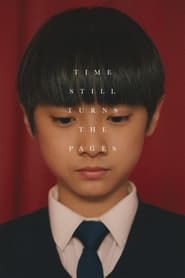 High school teacher Cheng looks back...
High school teacher Cheng looks back...Time Still Turns the Pages 2023
High school teacher Cheng looks back to his repressed childhood memories, as he finds an anonymous suicide note in the classroom. He strives hard to prevent another tragedy from happening, meanwhile facing a series of family problems, his wife is divorcing him, and his father is dying.
 A short film with dialogue for...
A short film with dialogue for...Don't Mind Me 2023
A short film with dialogue for Eason Chan's Mandarin song "Don't Mind Me" 社交恐懼癌 (from his most recent album "Chin Up"), which was produced as an extended backstory for the music video. The Chinese title literally translates as "social anxiety cancer". Starring Eason Chan himself, along with a guest appearance from Tony Leung Chiu-Wai.
 One day Pak a taxi driver...
One day Pak a taxi driver...Twilight's Kiss 2020
One day Pak, a taxi driver who refuses to retire, meets Hoi, a retired single father, in a park. Although both are secretly gay, they are proud of the families they have created through hard work and determination. Yet in that brief initial encounter, something is unleashed in them which had been suppressed for so many years. As both men recount and recall their personal histories, they also contemplate a possible future together.
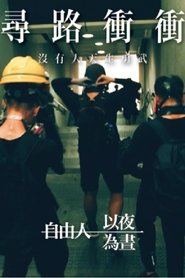 At the forefront of most of...
At the forefront of most of...Age of Valiant 2020
At the forefront of most of Hong Kong's demonstrations, 'frontliners' (aka 'the valiant', yung mo in Cantonese) are the black-clad, masked, often armed youth willing to use violence against the HK government and its heavily-armed police force. Willis Ho's remarkably revealing doc approaches from the inside, giving them voices and offering understanding, not judgment.
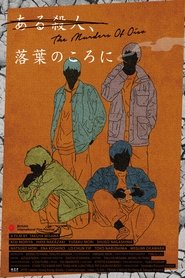 There are Tomoki Shun Kazuya and...
There are Tomoki Shun Kazuya and...The Murders of Oiso 2019
There are Tomoki, Shun, Kazuya, and Aita in Oiso, the seaside town. One day, Tomoki finds their teacher, Ito, who is their teacher and Kajya’s uncle, dead.
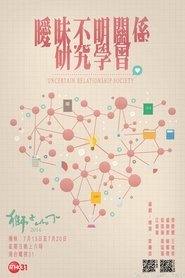 Ambivalence means nothing has happened but...
Ambivalence means nothing has happened but...Uncertain Relationships Society 2014
“Ambivalence means… nothing has happened, but you remember everything.” Another coming-of-age story about youngsters who are always desperate for but also afraid of falling in love, director Heiward Mak (High Noon, Ex, Diva) continues to examine the ambivalence of youthful love like an autopsy in this episodic adventure among a group of twenty-something. These characters might be a bunch of losers in love who are searching for self-esteem and recognition, but what make these intertwining tales relevant today are not just the pain and longing, but also the bittersweet memories and emotional growth of Hong Kong’s post-90s generation.
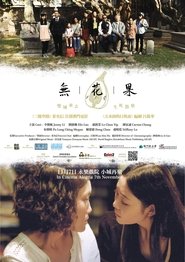 Ka a common housewife leaves her...
Ka a common housewife leaves her...Fig 2014
Ka, a common housewife, leaves her husband after big change in the family. Then she encounters Man, who has for years blamed her father Chow for bringing to light his relationship with his lover Tracy after the accidental death of Man’s mother. And so it seems that from departures stems relationships anew, but there are in fact little to be explained in the logic of cause-and-effect for existence, death, encounters, and love.

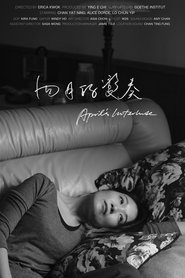 Shan a Hong Kong cosmetologist learnt...
Shan a Hong Kong cosmetologist learnt... After her father died a Hong...
After her father died a Hong...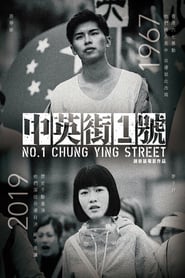 Four young lives were changed forever...
Four young lives were changed forever...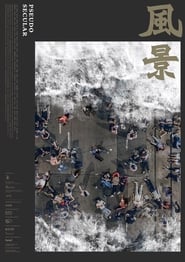 They are frozen in place stagnating...
They are frozen in place stagnating...